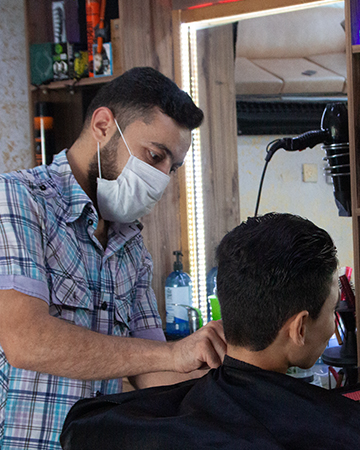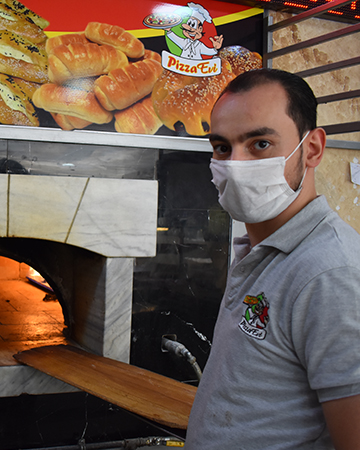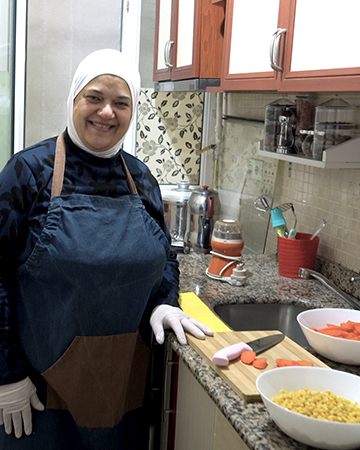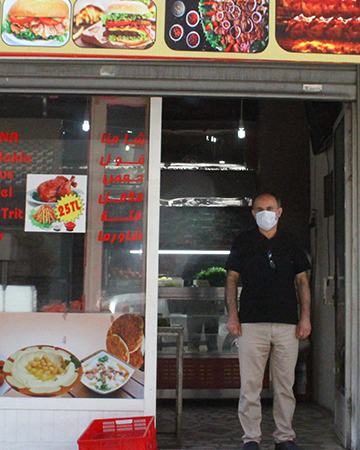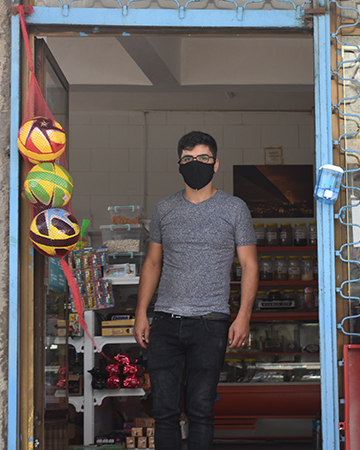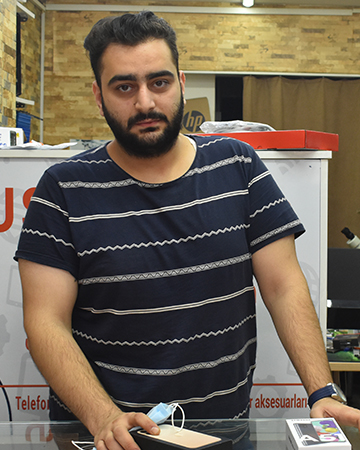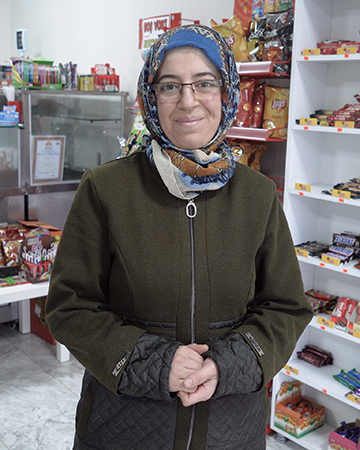M-Nour Maatouk was born in 1989 in Hama, Syria. He is a secondary school graduate and runs a barbershop. At the end of March, he participated in the “Şirketim” project to undertake the mandatory formalization steps of his workplace. Today he lives with his wife and two children in Sultangazi, Istanbul.
In Syria, he was working as a barber like he pursues his profession in Turkey. He was living with his family in Hama, and he had a stable life. However, the Syrian civil war has profoundly influenced his life as millions of Syrian citizens. He decided to leave Syria in 2015, when the effects of the Syrian civil war became unbearable. It was very tough to leave Hama because the Syrian army was in control of the city and was looking for Nour. Somehow he managed his breakthrough from Hama, and he passed to Idlib. Followingly, he transited to Turkey through the Al-Reyhaniye region. Throughout his journey, he was alone. His family was only able to join him in Istanbul a year later, and the family reunited.
To start an entirely new life in Turkey was not easy, especially for someone who does not know anybody in Turkey. For this reason, he had problems in every aspect at the beginning; he did not know the language very well, did not know how to find a job, or a house, and there was no one to get advice. Nevertheless, somehow he managed to maintain his life. Initially, he started working in a factory. The job was tiresome and difficult. While working at the factory during the weekdays, he also worked as a barber on weekends. For a year, he saved money by working hard and all the while searching how he could start his own business. Finally, at the beginning of 2019, he established his own business. Even though he had established his own business, carrying out the formalization process requires both the knowledge of related rules and regulations and financial resources. Therefore, he did not complete formalization due to the lack of both. For this reason, he was working with constant fear and reservations.
Until the project, he had no knowledge of either United Work or GIZ. After a friend told him that he is applying for the “Şirketim” project, he called United Work to learn more about the project. Later, one of the field officers of the United Work paid a visit to the workplace and introduced both the project and the project partners to him in detail. When he listened, he thought the project would be very beneficial for him and participated in the project. With the support of the project, he received the tax plate, registered the chamber, got a work permit, got the municipal license, and acquired the POS device and fire extinguisher inventories that are mandatory for workplaces. Besides, as is known, barbers are among the sectors most affected by the COVID-19 pandemic, they remained closed during quarantine processes, and people refused to go to barbers due to close contact. For this reason, they were severely affected in financial terms. In this context, the financial support provided within the scope of the project has been an essential resource for them. This resource contributed to the sustainability of Nour’s business significantly and enabled him to pay his debts that emerged during the pandemic. Therefore, he is grateful to the project partners and field workers for all the support provided within the scope of the project. Now, he can work in his business without any fear.
Nour has positive ideas about his future. From his arrival in Turkey up to today, he has made many Turkish friends and has been able to get along well with everyone. He is willing to stay in Turkey to continue its work and to build his future. He does not intend to return to Syria because he thinks that he can build a brighter future here both for himself and for his children.


